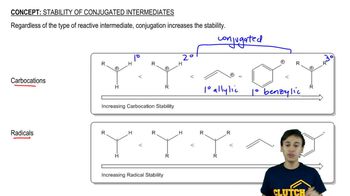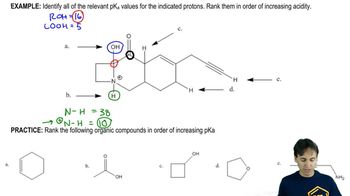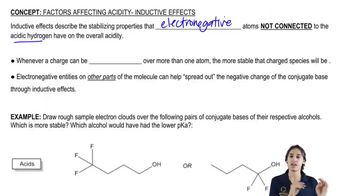Which is a stronger acid?
c. <IMAGE>
d. CH3CH2CH2OH or CH3CH2CH2SH
 Verified step by step guidance
Verified step by step guidance Verified video answer for a similar problem:
Verified video answer for a similar problem:



 3:15m
3:15mMaster Why we need factors affecting acidity and when to use them. with a bite sized video explanation from Johnny
Start learning